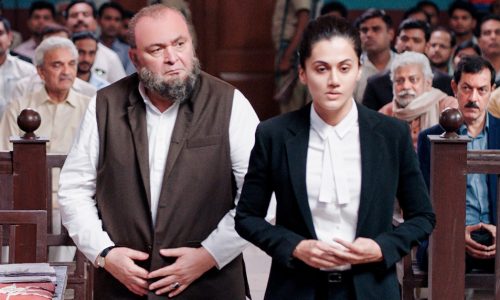The Bollywood film, Mulk (Country), is a powerful drama and a timely reminder of the struggle Muslims face in India about their identity and their fight against prejudices. It questions why Muslims constantly have to prove their loyalty to their country. And why the whole community has to pay for the jihadist acts of a few. Although it’s a story based in modern India, the issue of Islamophobia it raises is global. It could have been a story based in Europe or America.
Films from India and the Western world are frequently criticised for being Islamophobic, with villains and terrorists who are often Muslims. “Zero Dark Thirty”, “Argo” and “Aladdin” from Hollywood and a countless number from Bollywood can be cited as examples. The issue has also been discussed in comedy films like “Four Lions” and a Shah Rukh Khan starrer Bollywood film, “I am Khan and I am Not a Terrorist.” Mira Nair’s “The Reluctant Fundamentalist” is another example. But there’s hardly a film which tackles this issue as sympathetically as Mulk.

Mulk, written and directed by Anubhav Sinha, is about a Muslim family based in the northern Indian city of Varanasi. It’s a family headed by a retired lawyer Murad Ali Mohammed (veteran Bollywood actor, Rishi Kapoor) which lives happily with its Hindu neighbours – until his nephew Shahid is found to be involved in a bomb blast that kills 16 people, mostly Hindus.
After the bomb attack, not just Mohammed’s neighbours but the entire local Hindu community turns against the family. It’s even shunned by some Muslims. This is despite the fact that the family refuses to accept the dead body of Shahid, making clear that while a terrorist might have born and raised in their home, once they knew what he had done, they would have nothing to do with him.
Shahid’s father and Murad’s brother, Bilal Mohammed, is arrested and charged with being involved in terrorism. Murad comes out of his retirement to argue his case court, but then charges are even brought against him. It falls to his Hindu daughter-in-law, played by a young actress, Tapsi Pannu – who also happens to be a lawyer — to defend him and Bilal.

The best parts of the film are depicted in the court room, where prejudices against not just Muslims but also against Islam itself are portrayed, though often overdramatically. In the court even the judge initially seems to agree with the outrageous comments of the prosecution lawyer; the court hears that Muslims produce too many children, they’re mostly illiterate and the families are jihad factories. Much of the evidence produced by the prosecution suggests manipulation of the facts or is circumstantial and is not very difficult for the defence to counter.
The police officer in charge of the case, who himself is a Muslim, is also portrayed as an Islamophobe. He shoots dead Shahid instead of arresting him, apparently to send a message to other Muslims and to prove his own loyalty. But when pressed in the court to define terrorism, he offers the Oxford Dictionary’s definition: “The unlawful use of violence and intimidation, especially against civilians, in the pursuit of political aims.”
The defence lawyer stresses that by that definition, violent acts even against Dalits (formerly known as untouchables) and indigenous people are terrorism. It’s a valid point in contemporary India where not just Muslims but also Dalits and indigenous communities have been victims of violent attacks by right-wing Hindu groups.
The family patriarch, Murad Ali Mohammed, asks how he could prove his love for India? This is a difficult question. In the end, he says, he could only do that by love. He tells the court that if you can’t differentiate between his beard and that of Osama Bin Laden, then it’s not his problem. He also reminds the court that at the time of partition in 1947 when India was divided on the basis of religion, his family chose to stay in India rather than going to Pakistan, which was created as a Muslim homeland.
Mulk forcefully makes a point that one can’t blame the Islamic faith for terrorist acts carried out by its followers. But the film also sends a message that radicalisation among Muslim youth is a serious issue and it’s the responsibility of their families to keep a watch on them.
Rishi Kapoor as Murad Ali Mohammed is superb. This is his best role in the career spanning nearly 50 years. Tapsi Pannu as defence lawyer has also proved that the young actress has a bright future. But above all, it’s Anubhav Sinha who deserves most of the credit. Mulk is by far his best film in a career spanning back to 2001.
It’s perhaps notable that Sinha and all the leading actors in the film playing Muslim roles are themselves Hindus. Notable, but not surprising, because some of the most powerful advocates of the rights of Muslims in India are Hindus.
